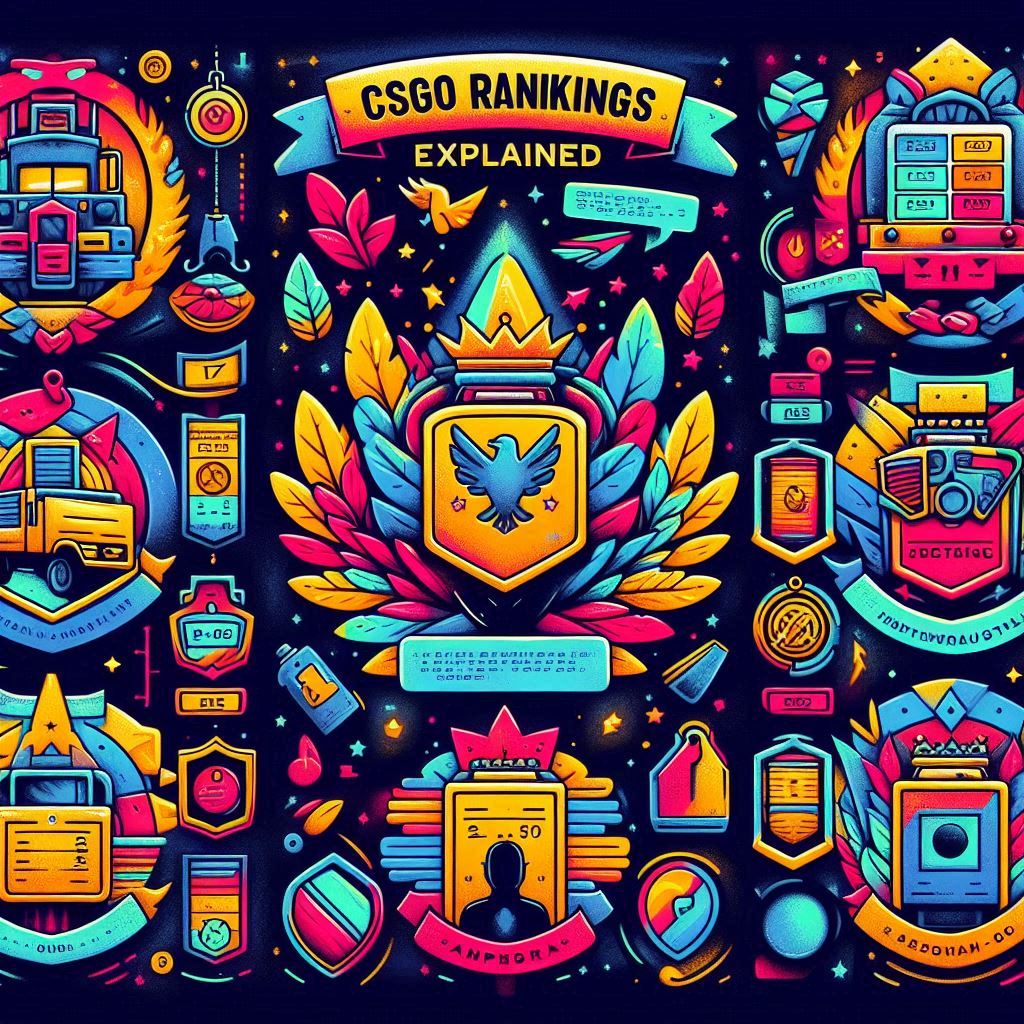Understanding CSGO Rankings: A Comprehensive Guide

CS:GO rankings are a reflection of a player’s skill level within the game’s competitive matchmaking system. These rankings, often referred to as ranks or skill groups, range from Silver I to Global Elite, with each rank representing a different skill level. Are you a CS:GO enthusiast eager to understand how rankings work? Knowing the ins and outs of CS:GO rankings can elevate your gameplay and help you climb the competitive ladder. Let’s break down everything you need to know about CS:GO rankings in an engaging and straightforward way.
What Are CS:GO Rankings?
CS:GO rankings are a system that categorizes players based on their skill levels in competitive matches. These ranks, ranging from Silver I to Global Elite, reflect your progress and proficiency in the game.
How CS:GO Rankings Work
Initial Placement
When players first start playing competitive matches, they undergo a series of placement matches to determine their initial rank. Factors such as individual performance and wins/losses influence this placement.
Skill Group Adjustment
After the initial placement, players’ ranks are continuously adjusted based on their performance in subsequent matches. Wins and losses, as well as individual performance metrics like kills, assists, and MVPs, all play a role in rank adjustments.
Elo System
CSGO rankings explained are based on the Elo rating system, which calculates the relative skill levels of players in competitive games. Winning matches against higher-ranked opponents results in greater rank increases, while losing to lower-ranked opponents can lead to rank decreases.
Understanding Rank Tiers
Silver Ranks
Silver ranks are the entry-level tiers in CS:GO, where players are still learning the fundamentals of the game. These ranks include Silver I to Silver Elite Master.
Gold Nova Ranks
Gold Nova ranks represent a step up in skill level, where players have a better understanding of game mechanics and strategy. These ranks include Gold Nova I to Gold Nova Master.
Master Guardian Ranks
Master Guardian ranks signify a higher level of skill and game knowledge. Players in these ranks demonstrate proficiency in aiming, positioning, and teamwork. These ranks include Master Guardian I to Master Guardian Elite.
Legendary Eagle Ranks
Legendary Eagle ranks are reserved for highly skilled players who excel in all aspects of the game. These ranks include Legendary Eagle, Legendary Eagle Master, and Supreme Master First Class.
Global Elite
Global Elite is the highest rank in CS:GO, attained only by the most elite players. Achieving this rank requires exceptional skill, teamwork, and game sense.
Tips for Ranking Up
Practice Regularly
Consistent practice is essential for improving skills and climbing the ranks in CS:GO. Dedicate time to honing aim, learning maps, and mastering game mechanics.
Communication
Effective communication with teammates can greatly impact match outcomes. Use in-game voice chat or text chat to coordinate strategies and provide information to teammates.
Learn from Mistakes
Analyzing gameplay and learning from mistakes is key to progress in CS:GO. Identify areas for improvement and actively work on refining skills and decision-making.
Conclusion
Understanding CS:GO rankings is essential for players looking to gauge their skill level and track their progress in competitive matches. By familiarizing yourself with how rankings work and implementing strategies for improvement, you can climb the ranks and become a more skilled CS:GO player. Mastering the CS:GO ranking system isn’t just about winning matches—it’s about embracing a journey of continuous improvement, strategic thinking, and teamwork. Each rank you achieve is a milestone that reflects your dedication and growth as a player. By understanding how the ranking system works, you can set realistic goals, track your progress, and stay motivated on your path to becoming a top-tier player.
FAQs
1. How often do CS:GO rankings change?
CS:GO rankings can change after every match, depending on factors like wins, losses, and individual performance.
2. Can I de rank in CS:GO?
Yes, if your performance in matches drops below a certain threshold, you may de rank to a lower skill group.
3. Is it possible to skip ranks in CS:GO?
While it’s uncommon, exceptional performance in placement matches can result in skipping ranks and being placed in a higher skill group.
4. Do casual matches affect CS:GO rankings?
No, CS:GO rankings are based solely on performance in competitive matchmaking matches.
5. How can I check my CS:GO rank?
You can view your current CS:GO rank by accessing your profile within the game.







